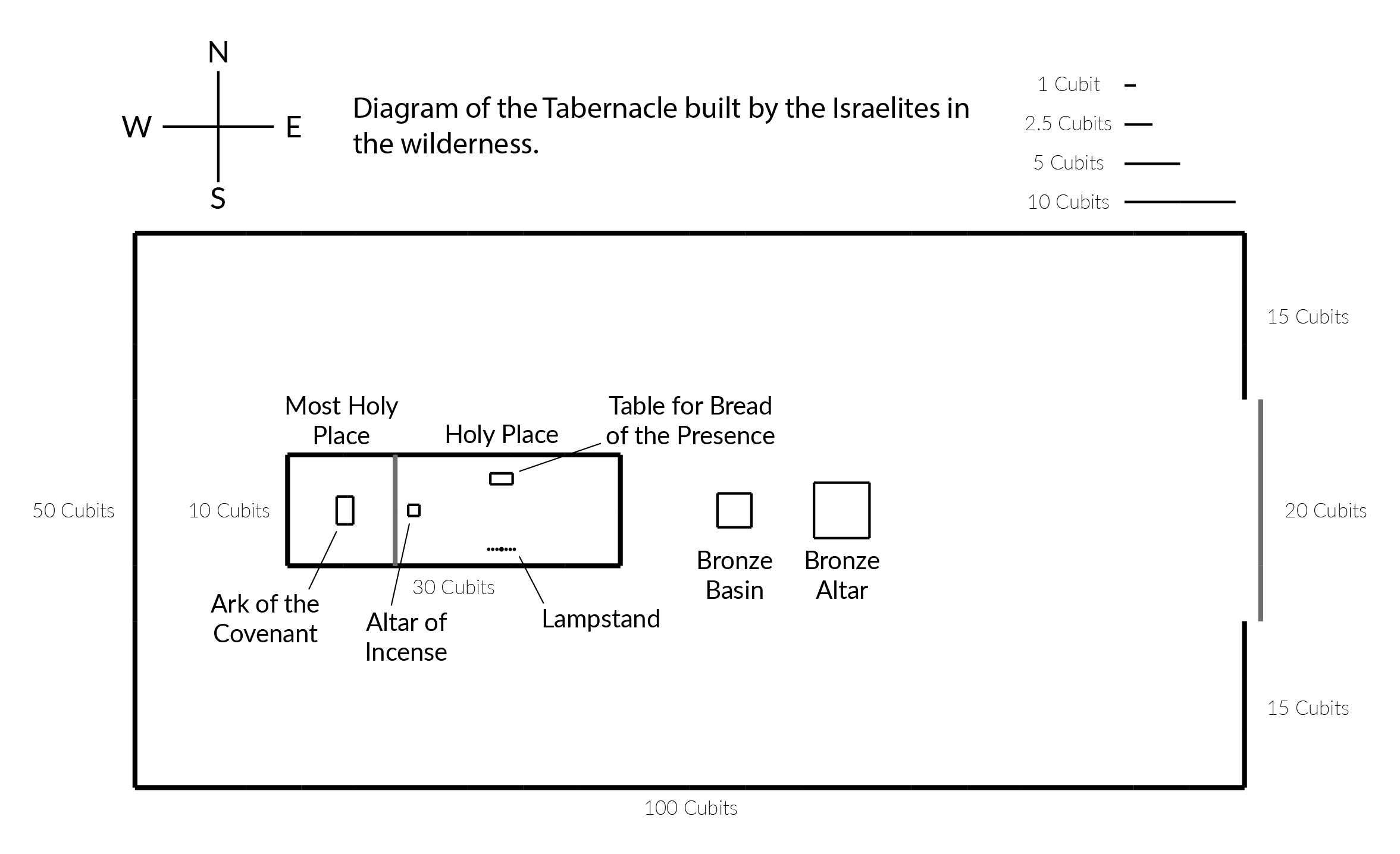Leviticus 25 Summary: A Short Breakdown in 5 Minutes
Leviticus 25 Summary - A Quick Overview
WHEN:
Leviticus picks up where Exodus left off. The children of Israel are on their way through the wilderness to the Canaan land.
According to Leviticus 8, the Tabernacle had already been erected, which would place the year at approximately 1490 B.C. (one year after the Israelites left Egypt).
DEFINITIONS:
Stranger (Sojourner) - The Bible uses the word “strangers” to describe foreigners (people who weren’t descendants of the 12 sons of Jacob) who lived amongst the Israelites, both in the wilderness and in Canaan.
Redeem – To gain or regain possession of something via a payment (usually money).
TABERNACLE DIAGRAM
OUTLINE:
THE 7TH YEAR SABBATH (25:1-7):
God spoke to Moses on Mount Sinai and instructed the Israelites to keep a 7th year Sabbath.
The Hebrews were to farm their land for 6 years, but on the 7th year they were to let the land rest.
THE 50TH YEAR JUBILEE (25:8-22):
When the Israelites entered Canaan and made it their home, the land was divided up and given to families by casting lots. Each family received a portion of land that was to remain theirs forever.
The Israelites were instructed to celebrate every 50th year as a jubilee.
On the year of jubilee, all the land that had been leased was to be returned to the original owners (the families of those who received it by casting lots).
The jubilee year was also a year of rest for the land. The Israelite’s fields were to remain unplanted and unharvested.
Following the year of jubilee, if a family wanted to lease their land to someone else, they were to charge a price based on how many years were remaining until the next jubilee, when the land would return to them.
If the Israelites kept God’s instructions regarding the 7th year Sabbath and the year of jubilee, God would bless the land and make it produce in abundance.
THE SALE AND REDEMPTION OF LAND (25:23-28):
Plots of land in Canaan were never to be sold permanently (in perpetuity) because the land belonged to God.
Land could only be leased.
If a poor man leased his land due to financial troubles, he had the right to redeem (buy back) the land if he desired.
A close relative also had the right to redeem the land.
If the land was not redeemed, it remained in the possession of the one who leased it until the jubilee year.
THE SALE AND REDMPTION OF HOUSES (25:29-34):
In regards to the sale of houses in walled cities, if a house in a city was sold, the seller had the right to redeem it for one year following the sale. If they did not redeem it, the buyer became the owner of the property and did not have to return it during the jubilee year. This was true with one exception.
If the house belonged to a Levite, the house had to be returned in the year of jubilee because the Levites didn’t receive a portion of land when the Israelites took possession of Canaan. Additionally, a Levite had the right to redeem his house at any time, the one-year time limit didn’t apply.
LAWS RELATED TO POOR ISRAELITES (25:35-46):
If an Israelites man fell on hard times and was unable to support his family with food and shelter, it became his richer neighbor’s responsibility to give him a place to live and food to eat.
The neighbor was not allowed to loan him money at interest or sell him food for profit.
If a poor Israelite sold himself to a fellow Israelite, the poor Israelite was not to be treated like a slave, but as a hired servant.
The hired Israelite was freed from his service in the year of Jubilee.
The Hebrews were allowed to buy slaves from the nations around them, but they were not to make slaves of their countrymen.
REDEEMING POOR ISRAELITES FROM A SOJOURNER (25:47-55):
If an Israelite became poor and sold himself to a foreigner living in Canaan, he had the right to be redeemed by another Israelite, a close relative, or he could buy his own freedom if he became wealthy.
The price to buy his freedom was based on the number of years until the next jubilee.
If the Israelite was not redeemed, he was to be given liberty on the year of jubilee.
APPLICATION:
Allowing yourself to rest can be a statement of faith.
It can be tempting to work 24/7 on the things we value because it’s easy to wrongly believe all our success depends on our work ethic.
It’s easy to fall into the trap of thinking, “If I’m not working, nothing is being done and progress isn’t being made.”
Resting from work, even godly work, needs to be done as a reminder to ourselves that God is working even when we are not.
The success of our endeavors depends much more on God’s blessing of our work than us putting in a 7-day work week. When we get consumed in our work it’s easy to forget that.
If you are a workaholic, maybe you ought to practice these principles of rest, and dedicate a day to stepping back from your work and trusting that God will manage things.


